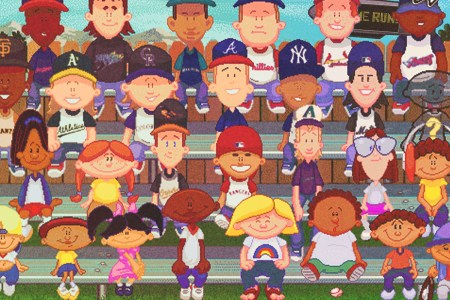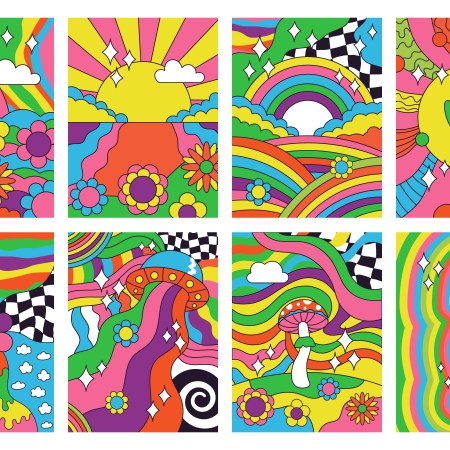“I knew I had a problem,” Scott admits. “The amount I time I spent doing it kept ramping up, and the idea of stopping was something I found terrible. I recognized all the signs of an addict and knew I had to do something.”
Scott wasn’t addicted to alcohol or drugs, but to playing video games. Every hour he had he’d spend in front of a screen. “It allowed me to escape. All my stress would disappear,” explains Scott, a spokesman for Gaming Addicts Anonymous, which was established in 2014 and has steadily seen rising demand for its counseling services.
“Playing with other people made me feel part of something that I was accomplishing in ways I perhaps couldn’t [in the real world]. I set timers on my game-play, tried cutting whole genres of games,” he says. Still, nothing worked. “I kept thinking that I’d be able to moderate my use, but I couldn’t. The only solution for me was to abstain completely. That was very hard at first. It took me maybe a year to adjust. Now I have the focus to do other things in my life, to exercise and sleep.”
“I still play games,” he adds. “Board games.”
By many anecdotal accounts, Scott is not alone. Nor is his case a particularly extreme one: he speaks of distraught parents calling because their kids threaten to stop eating if their game time is curtailed, or who refuse to go to school, and of older players who cannot hold down a job. For all that gaming may be associated with teenagers — boys make up the majority of gamers, playing, by one count, an average of two hours and 19 minutes a day — the average age of a gamer in the U.S. is actually 33. Through his role, Scott regularly hears tales of their aggression, anxiety, depression, insomnia and hyper-arousal.
The Rise of Internet Gaming Disorder
Those tales exemplify what psychologists now refer to as internet gaming disorder (IGD). The World Health Organization has classified “video game addiction” as a mental-health disorder, and in 2022 the same designation was added to the American Psychiatric Association’s DSM-5-TR, its bible of mental-health conditions.
The disorder’s definition includes the following: a preoccupation with gaming, a build-up of tolerance, withdrawal symptoms, deception about one’s gaming and a loss of interest in other activities, as well as the loss of relationships, schooling or career. In some countries — e.g., the U.K. and South Korea — there are now specialist centers for dedicated treatment.
What Online Gambling Is Doing to Our Brains and Bodies
Money down, cortisol up: Omnipresent betting is taking its tollWhat’s in an Addiction?
“Does gaming addiction exist? Yes. But whether video games are addictive is another question entirely,” says Dr. Mark Griffiths, head of Nottingham Trent University’s International Gaming Research Unit, the most published researcher on the topic of gaming-related disorders.
A signifier of how young the research is: Dr. Griffiths has been criticized for both watering down the criteria by which gaming addiction might be claimed and for being too strict in his criteria.
“I’m not anti-gaming at all,” Griffiths adds. “I play. I let my children play. But I think what we have is only a small minority of players whose play has a [negative] impact on their life, and they remain functional. They may have a problem, but they’re clearly not addicted. What did I do when I was these kids’ ages? I’d watch four to five hours of black-and-white TV every day.”
The nature and extent of gaming’s “addictiveness” remains muddled and contradictory. It’s unclear whether problems often attributed to excessive gaming (like ADHD, autism or depression) are because of gaming, or whether people with those problems are drawn to gaming. “It’s like photosensitivity,” suggests Griffiths. “Games may trigger epilepsy, but they don’t cause it.”
When Gaming Is Life
At the same time, the most recent games are designed to be deeply engaging in ways no form of mass entertainment has been before. As Scott argues, games are now immersive and 24/7, with realistic quality, avatar personalization and platforms for connection with other people — who mutually reinforce the desire to game. Many games’ built-in reward mechanisms expertly activate dopamine release in the brain, grabbing hold of a player and refusing to let go. Challengingly, it’s the games that do this best that are most often associated with creating problems for players.
Dr. Angelica Ortiz de Gortari, a psychologist and lead researcher in esports at the University of Bergen, Norway, and, with Griffiths, one of the co-developers of the idea of Game Transfer Phenomena (which refers to a condition when one’s perceptions of real-life are shaped by excessive game-play), points to “problematic gaming.” That’s when video games are played in order to compensate for a lack of positive life experiences.
She stresses that certain individuals are more susceptible to developing a problematic relationship to playing video games, and that often these people have an underlying mental disorder such as anxiety or depression. Those with IGD, according to a 2017 study, might amount to between 0.3% and 1% percent of Americans — which is below rates for alcohol or substance-abuse disorders.
But Griffiths is skeptical of those figures. “[Even if] those rates of gaming disorder were accurate, you’d expect to see specialist clinics in every big city in every country, and clearly that’s not the case,” he says. “I don’t think gaming addiction is as prevalent as much of the [scientific] literature suggests.”
“The comorbidity [when someone has more than one condition at the same time] in gaming disorder sums up the controversy of considering gaming disorder a primary disorder,” Ortiz de Gortari says. “The current conceptualization of gaming disorder may revolve around excessive gaming and the negative consequences that arise from it. But there’s still a lack of understanding regarding the specific characteristics of the games and the actual effects they produce.”
Indeed, there is also another side to the gaming story less often reported. Studies suggest that playing video games can have negative physical side-effects, like eye strain, repetitive strain injuries, “Nintendonitis” and motion sickness. As with anything sedentary, it’s not the healthiest thing you could be doing, and time spent gaming has been correlated with higher BMI, poor sleep and the excess consumption of caffeine and calories. In short, too much gaming can make you fat, wired and tired.
But Aren’t There Cognitive Benefits?
At the same time, recent studies — some using fMRI scans to compare gamers with non-gamers — indicate that gaming has many positive mental-health benefits, among them increased awareness and reaction times, improved working memory and increased cognitive activity. Regions in the brain attributed to attention have been found to be more efficient in gamers than non-gamers. Some studies have even suggested gamers show a relatively higher IQ, perhaps a consequence of the fast information processing required of players by many games, or perhaps because it takes that processing speed to enjoy the games in the first place.
“If a gamer spends 10,000 hours playing a game, they become an expert in that game, but they also become expert in so many other things — problem-solving, strategy, tactics, planning, communication, negotiation, team building and team management, in meeting goals — and in doing all that with a certain energy and optimism,” enthuses David Mullich, a leading video game designer for Apple and Activision, and the first video game producer appointed by Disney. “These are all qualities that games might in time put to powerful social use.”
It’s not clear yet whether all this brain training extends into the real world. But small wonder that the neurologist Steven Novella has likewise proposed that specially-devised video games should at least be explored for their potential as teaching aids in schools.
Remembering the Most Inclusive Video Game Ever, 25 Years Later
In “Backyard Baseball,” everyone on the playground was allowed to playSocial Benefits, Too
Other benefits have been identified as well. Chief among these recent studies is one that was conducted by the Oxford Internet Institute in 2022 — a breakthrough report for its use of hard data provided by gaming companies, and not based, as previous studies have typically and problematically been, on self-reporting by players. It concludes that gaming can improve well-being through the sense of autonomy, relatedness, competence and the straight-forward enjoyment that they encourage.
Perhaps the standout benefit is the social connection that gaming provides — despite the assumption that all that screen time has players retreating into asocial bubbles. “In fact, some players don’t actually care much about the game itself,” says Nick Ballou, a postdoctoral researcher and one of the people behind the study. “For them it’s an important form of stress relief, of [what psychologists call] ‘mood stabilization.’”
Remarkably, this was the first study of its kind, in part because it’s only in recent years that game developers have recognized the value of collecting data at scale. “But there’s also been a hesitancy [in the gaming industry to work with academia],” says Ballou. “I think the industry is worried [about being deliberately misrepresented] and is gun-shy from its previous experience of media coverage hurting their bottom line. To let researchers be independent and go where the data takes them is hard for the developers.”
Video Games and Villification
Then there’s the media hysteria that’s long swirled around the dangers of video games — the unproven, causal connection between playing violent video games and high-school shootings, for instance. “There’s a long history of new forms of media getting a bad rap — folk panics about rock music or Dungeons & Dragons,” suggests Jeremy Saucier, assistant vice president at the Strong National Museum of Play in New York and editor of the American Journal of Play. “I think we’re seeing a backlash because we don’t yet fully understand the implications of what is a new medium, and one that has massively matured [over recent years].”
“There is a lot of misinformation about the effects of video games, especially toward the negative effects, since there are numerous titles with varying content and ways to play them, and unfortunately, the media like to give preference to stories with hard-hitting negative headlines,” agrees Ortiz de Gortari, who would nonetheless like to see game developers provide warnings as to the potential effects of their games while playing and post-play. “The study of video game effects is still in its early stages, and governmental bodies must provide information and enforced policies on social responsibility.”
What’s the Verdict?
The research required to better understand what’s happening here can’t come fast enough. Bottom line: we don’t know for sure if too much gaming is notably bad for you, good for you, just bad or good for a small minority, or all of the above.
This situation is only made more complex by the fact that while some are looking to build a lucrative new market for treatment, screen-based tech does seem to be the water younger generations swim in — and, increasingly, not just them. Are we pathologizing a behavior that is the new normal?
“That’s why we talk not about abstinence but management,” says Dr. Mike Bishop, a psychologist and founder of Summerland Camps, which runs a U.S.-based technology habit change program for 12 to 21-year-olds, many of them, if not exactly addicted, at least beholden to their “gamified” social media feeds or game consoles. “We have to give [these children and young adults] reasons to start managing their tech use and awareness of just how much time it takes up when other things should be given priority. Are they seriously planning on being a pro-gamer or should they actually be planning for university?”
“As long as we meet the needs that gaming meets — socializing, reduced anxiety, a sense of being able to do something well — we see only minimal withdrawal symptoms for most kids,” he adds. “But there are extreme cases where a child is just stuck in a haze. I truly believe that in, say, 20 years time, we’ll look back on this topic as we look on cigarette advertising from the ’30s, and we’ll just be amazed that we weren’t setting limits on children’s access to these devices.”
The Charge will help you move better, think clearer and stay in the game longer. Subscribe to our wellness newsletter today.


























